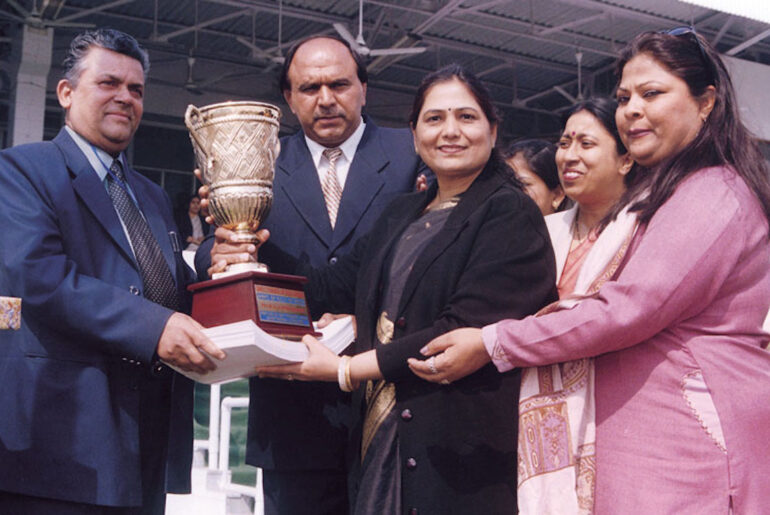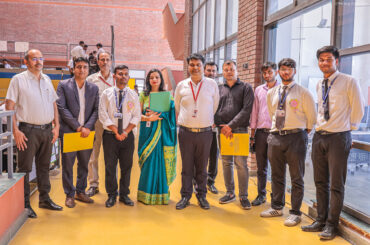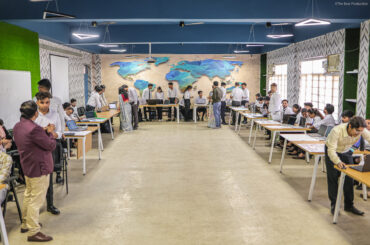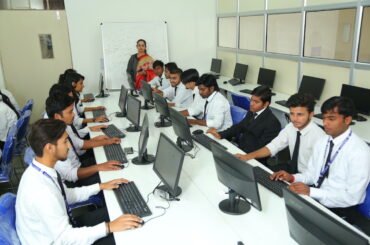About BCA
(BCA) Bachelor of Computer Application degree is an undergraduate degree program typically spanning three to four years, depending on the educational institution and the country’s educational system.
It focuses on various aspects of computer application, including software design, coding languages, database management, computer network, web development, and computer applications in business.
The curriculum of a BCA course usually includes both theoretical knowledge and practical skills. Students may learn coding languages like C, C++, Java, Python, and others, as well as database management systems such as SQL. Additionally, they might study topics like computer architecture, operating systems, data structures, algorithms, software engineering principles, and computer networking.
BCA degree often incorporate hands-on projects, internships, and practical training to give students real-world experience and prepare them for careers in the field of IT.
Graduates of BCA degree after completing BCA can pursue various career paths, including web development, database administration, systems analysis, network administration, IT consulting, and more. Additionally, some students may choose to pursue further education by enrolling in master’s programs like Master of Computer Applications (MCA) or related fields.
To pursue BCA, students typically need to meet specific eligibility criteria, such as completing their higher secondary education with a focus on mathematics or computer science. Pursuing BCA opens up numerous career options in the IT industry, making it a popular choice among students.
Some of the most opted courses in India and St. Andrews college or different Engineering college or Management colleges are as follows:-
- Btech
- Btech CSE
- Btech ETCE
- MTech
- BCA
- BBA
- MBA
- MCA
- DPharma – St. Andrews College of Pharmacy
- BPharma – St. Andrews College of Pharmacy
- BArch – St. Andrews College of Architecture
BCA Course Highlights
Here are the highlights of a typical Bachelor of Computer Applications (BCA) course:

Duration
BCA is an undergraduate program typically spanning three to four years, depending on the educational institution and the country’s educational system.
Eligibility
BCA eligibility criteria may vary, but generally, students who have completed their 10+2 schooling from a recognized board with mathematics as one of the subjects are eligible to apply for BCA course.
Curriculum
The BCA course curriculum covers a wide range of topics related to computer and applications. This includes subjects like programming languages (C, C++, Java, Python, etc.), database management systems (SQL), web development, computer networks, data structures, algorithms, software design principles, operating systems, and more.
Practical Training
BCA course often include hands-on projects, practical sessions, and internships to provide students with real-world experience and enhance their practical skills in software design, web development, database management, and other areas.
Electives
Some BCA course offer elective courses in specialized areas such as artificial intelligence, machine learning, cybersecurity, cloud computing, mobile application development, and e-commerce, allowing students to tailor their learning based on their interests and career goals.
Assessment
Students are assessed through a combination of examinations, practical assignments, projects, presentations, and sometimes internships. Continuous evaluation and practical application of knowledge are often emphasized.
Career Opportunities
Graduates of BCA course have a wide range of career opportunities in the field of information technology (IT). Individuals with a BCA degree can explore various roles, including software developer, web developer, database administrator, systems analyst, network administrator, and IT consultant, among others. Additionally, they can opt for further studies such as Master of Computer Applications (MCA) or other related master’s programs.
Industry Relevance
BCA course are designed to align with industry standards and requirements, ensuring that graduates are well-prepared to meet the demands of the rapidly evolving IT industry.
Research Opportunities
Some BCA course provide opportunities for students to engage in research projects, participate in hackathons, attend workshops and seminars, and collaborate with faculty members on research initiatives, fostering innovation and creativity in the field of computer applications.
Soft Skills Development
In addition to technical skills, BCA programs often focus on developing students’ soft skills such as communication, teamwork, problem-solving, critical thinking, and leadership, which are essential for success in the workplace.
Bachelor of Computer Applications Duration

The course duration of a (BCA) Bachelor of Computer Application program typically spans three to four years, depending on the educational institution and the country’s educational system.
Here’s a breakdown of the typical duration:
Three-Year Program
In many countries, including India, a standard BCA course is structured as a three-year undergraduate degree course. The three-year of course duration consists of six semesters, with each semester lasting approximately six months.
Four-Year Program
In some educational systems or institutions, particularly in countries like the United States, Canada, and certain European countries, BCA courses may be designed as four-year undergraduate degree courses. These BCA courses often include additional coursework or requirements, such as internships or co-op placements, which extend the program duration. Four-year BCA course typically consists of eight semesters.
BCA Eligibility Criteria

The eligibility criteria for (BCA) Bachelor of Computer Application courses may vary slightly depending on the educational institution and country-specific regulations.
However, here are the general eligibility criteria commonly observed:
Educational Qualifications
Applicants must have completed their secondary education (high school) or its equivalent from a recognized board or institution. Students who meet these criteria can pursue BCA at various BCA colleges with good placement prospects.
Minimum Percentage
Many institutions require candidates to have attained a minimum percentage in their qualifying examination, often around 50% to 60%. However, the specific percentage requirement may vary between institutions.
Subject Requirements
Candidates should have studied specific subjects at the secondary level. Mathematics is usually a mandatory subject, while some institutions may also require candidates to have studied Computer Science or IT.
Language Proficiency
Proficiency in the language of instruction (usually English) may be required, particularly for international applicants or in institutions where the medium of instruction is English.
BCA Entrance Exams
Some institutions conduct entrance examinations for admission to their BCA course. These exams assess the candidate’s aptitude in areas such as mathematics, reasoning, and English language skills. The specific entrance exam requirements vary between institutions.
Age Limit
There may be an upper age limit for admission to BCA courses, although this criterion is less common and may vary between institutions.
Reserved Categories
Institutions often have reserved seats or relaxation in eligibility criteria for candidates belonging to certain categories such as Scheduled Castes (SC), Scheduled Tribes (ST), Other Backward Classes (OBC), and Persons with Disabilities (PwD), as per government regulations.
BCA Admission Process
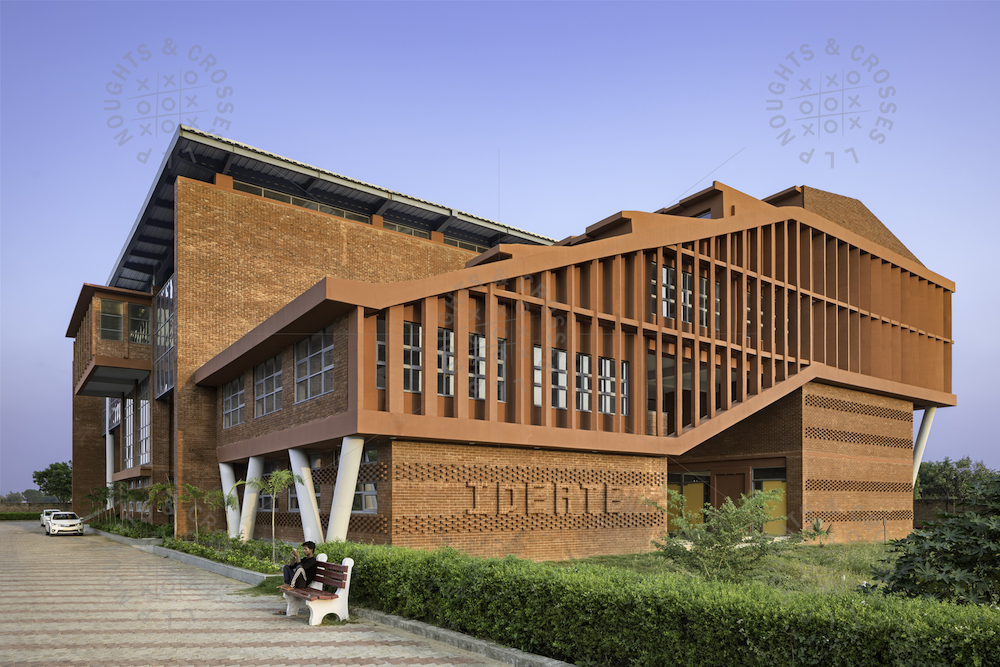
The admission process for the (BCA) Bachelor of Computer Applications course in India typically involves several steps, which may vary slightly between institutions.
Here is a general overview of the BCA course Admission process:
Research and Selection of BCA Colleges
Identify the BCA colleges and universities.
Check the specific eligibility criteria, admission process, and deadlines for each institution.
Fulfilling Eligibility Criteria
Ensure you meet the minimum educational qualifications, age limit, and any other specific requirements set by the institution.
Some colleges may require Mathematics or Computer Science as a subject in 10+2, while others may accept candidates from any stream.
Application Form
Obtain the application form from the respective college’s official website or admission office.
Fill out the application form accurately, providing all necessary personal and academic details.
Entrance Exams (if applicable)
Some institutions conduct entrance exams for BCA course admissions, such as:
IPU CET (Indraprastha University Common Entrance Test)
CUET (Christ University Entrance Test)
Prepare for the entrance exam by studying subjects like mathematics, logical reasoning, and basic computer knowledge.
Appear for the entrance exam on the scheduled date.
Merit-Based BCA Admission
For colleges that do not conduct BCA entrance exams, admissions are often based on the merit of the 10+2 examination scores.
Ensure you have a competitive score to increase your chances of admission.
Submission of Documents
Submit all required documents, which may include:
10th and 12th mark sheets and certificates
Transfer certificate
Migration certificate (if applicable)
Passport-sized photographs
Identity proof (Aadhar card, passport, etc.)
Category certificate (if applicable)
Personal Interview/Counseling (if applicable)
Some colleges may conduct a personal interview or counseling session as part of the selection process.
Prepare to discuss your academic background, interests, and reasons for choosing the BCA course.
Admission Offer and Fee Payment
Once selected, you will receive an admission offer from the institution.
Pay the required BCA admission fee within the stipulated time to confirm your seat.
Complete any additional formalities as specified by the college.
Commencement of Classes
After completing the BCA admission process, attend the orientation program (if any) and start attending classes as per the academic schedule.
BCA Course Fees Structure
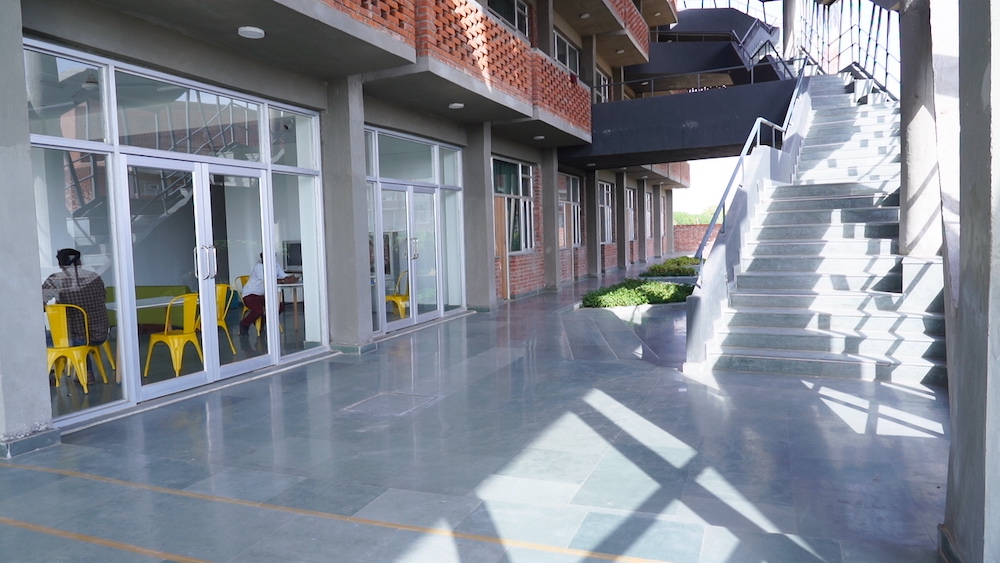
The fees for Bachelor of Computer Applications (BCA) programs can vary significantly depending on various factors such as the country, the reputation and ranking of the educational institution, whether it is a public or private institution, the location of the institution, and any additional facilities or services provided as part of the program.
Here are some general considerations regarding BCA course fee:
Public vs. Private Institutions
Public colleges (government-funded) often have lower tuition fee compared to private colleges. However, BCA course fees at private colleges can vary widely and may be higher due to factors such as infrastructure, faculty expertise, and additional facilities.
Location
Tuition fees may vary based on the cost of living and educational standards in the region where the institution is located. Institutions situated in metropolitan areas or regions with higher living costs may have higher BCA course fees.
Program Duration
The total BCA fees will depend on the duration of the course (typically three to four years). Longer programs will generally have higher total fees compared to shorter ones.
Additional Costs
In addition to tuition fees, students may need to budget for other expenses such as accommodation, meals, transportation, textbooks, course materials, technology fees, and personal expenses. These additional costs can vary significantly depending on individual circumstances and preferences.
Scholarships and Financial Aid
Many institutions offer scholarships, grants, or financial aid programs to support students with their tuition fees and other educational expenses. Prospective students should research and inquire about scholarship opportunities and eligibility criteria.
International Students
International students may have different BCA course fees structures compared to domestic students. They may also need to budget for visa fees, health insurance, and other administrative expenses.
BCA Fees Structure
Institutions may have different fee structures, such as annual or semester-wise payment plans. Some institutions may also offer installment options or flexible payment arrangements to assist students with managing their expenses.
Skills that you will learn During BCA Degree

A Bachelor of Computer Applications (BCA) program equips students with a wide range of skills that are valuable in the IT industry and beyond.
Here’s a detailed list of skills developed during a BCA Course:
Technical Skills
Coding Languages:
Proficiency in languages such as C, C++, Java, Python, and others.
Understanding of syntax, semantics, and best coding practices.
Database Management:
Knowledge of SQL and database management systems like MySQL, Oracle, and MongoDB.
Skills in database design, normalization, and data manipulation.
Web Development:
HTML, CSS, JavaScript for front-end development.
Server-side scripting languages such as PHP.
Frameworks and libraries like React, Angular, and Node.js.
Software Development:
Principles of software engineering, including software development life cycle (SDLC), agile methodologies, and version control systems like Git.
Experience with integrated development environments (IDEs) such as Eclipse, Visual Studio, and PyCharm.
Operating Systems:
Understanding of operating systems concepts, including process management, memory management, and file systems.
Hands-on experience with operating systems like Windows, Linux, and Unix.
Networking:
Basics of computer networks, including OSI and TCP/IP models.
Knowledge of network protocols, network security, and wireless networks.
Mobile Application Development:
Development of mobile applications for platforms like Android and iOS using technologies like Java, Kotlin, Swift, and Flutter.
Analytical and Problem-Solving Skills
Algorithm Design and Analysis:
Understanding of data structures and algorithms, including sorting, searching, and optimization techniques.
Ability to design efficient algorithms and analyze their time and space complexity.
Critical Thinking:
Ability to approach problems logically and systematically.
Use of analytical tools and techniques to solve complex issues.
Management and Soft Skills
Project Management:
Understanding of project management principles, including planning, execution, monitoring, and closure.
Familiarity with tools like Microsoft Project, JIRA, and Trello.
Communication Skills:
Development of written and verbal communication skills to effectively convey technical information.
Experience in creating technical documentation, reports, and presentations.
Team Collaboration:
Ability to work effectively in team settings, understanding team dynamics, and collaborative problem-solving.
Experience in group projects and peer programming.
Time Management:
Skills in prioritizing tasks, managing time effectively, and meeting deadlines.
Balancing academic workload with project work and practical assignments.
Additional Skills
Ethical and Social Responsibility:
Understanding of professional ethics in IT.
Awareness of the social and environmental impact of technology.
Entrepreneurial Skills:
Basic understanding of entrepreneurship, startups, and innovation in technology.
Exposure to business models, market analysis, and financial planning.
Research Skills:
Ability to conduct research and stay updated with the latest technological advancements.
Experience in academic research, technical writing, and presentations.
Practical Experience
Internships and Industry Exposure:
Practical experience through internships in IT companies, startups, and other organizations.
Exposure to real-world projects and industry practices.
Capstone Projects:
Development of comprehensive projects that integrate various skills learned during the program.
Experience in project planning, development, testing, and deployment.
Personal Development
Self-Learning:
Encouragement to engage in self-learning and continuous professional development.
Use of online resources, courses, and certifications to enhance knowledge and skills.
BCA Syllabus
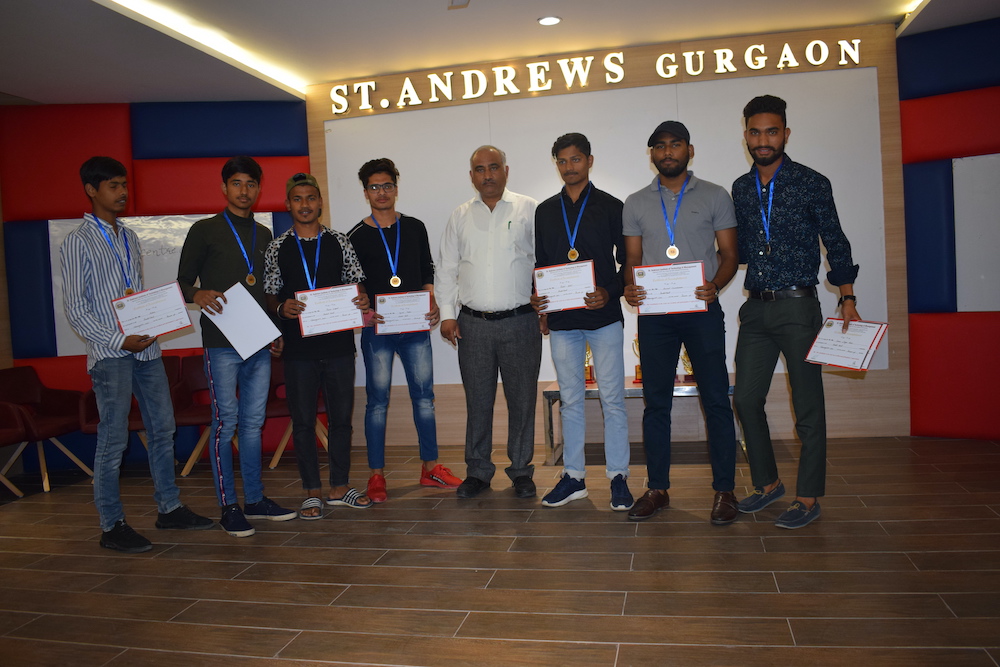
BCA degree programs typically offer a comprehensive BCA syllabus covering various subjects related to computer science, IT sector, and business applications.
Here’s an overview of the common BCA Syllabus included in a BCA course to provide students with a well-rounded learning experience:
Fundamentals of Computers
Introduction to computer hardware, software, operating systems, and basic computer systems architecture.
Coding Languages
Learning coding languages such as C, C++, Java, Python, or others to develop foundational programming skills.
Data Structures and Algorithms
Understanding data structures (arrays, linked lists, stacks, queues, trees, graphs) and algorithms for efficient problem-solving.
Database Management Systems (DBMS)
Studying concepts of database design, normalization, SQL programming, database administration.
Web Technologies
Introduction to web development technologies including HTML, CSS, JavaScript, and server-side scripting languages (e.g., PHP, ASP.NET, Node.js).
Software Designing
Principles and methodologies of software design life cycle (SDLC), requirements analysis, design, coding, testing, and maintenance.
Operating Systems
Understanding operating system concepts, process management, memory management, file systems, and operating system security.
Object-Oriented Programming (OOP)
Concepts of object-oriented programming, encapsulation, inheritance, polymorphism, and abstraction using OOP languages like Java or C++.
Internet of Things (IoT)
Introduction to IoT concepts, sensors, actuators, IoT platforms, and applications of IoT in various domains.
Data Analytics and Visualization
Basics of data analytics, data visualization techniques, statistical analysis, and tools like Excel, R, or Python libraries (e.g., Pandas, Matplotlib, Seaborn).
Cybersecurity
Understanding cybersecurity fundamentals, threats, vulnerabilities, cryptography, network security, and best practices for securing computer systems and networks.
Mobile Application Development
Introduction to mobile app development platforms, mobile operating systems (Android, iOS), and mobile app development frameworks (e.g., Android Studio, Swift).
Software Testing and Quality Assurance
Principles of software testing, types of testing (unit testing, integration testing, system testing, etc.), test planning, test case design, and quality assurance methodologies.
Business Communication and Soft Skills
Developing communication skills, teamwork, leadership, presentation skills, and professionalism in the workplace.
Project Management
Basics of project management methodologies, project planning, scheduling, budgeting, risk management, and project documentation.
Popular BCA Specializations and their Duration
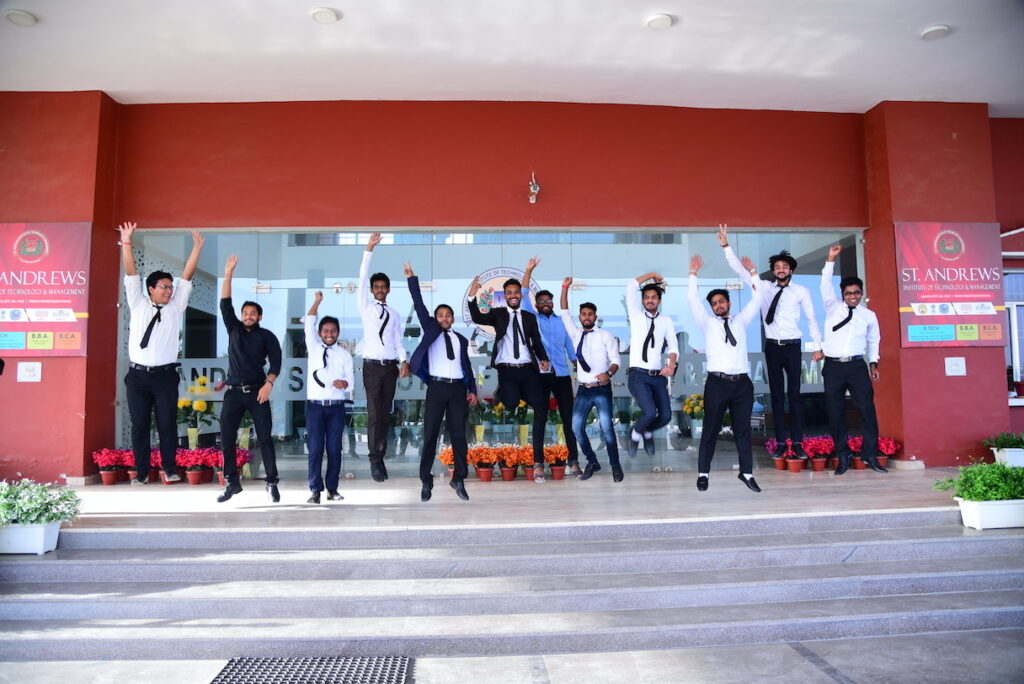
The Bachelor of Computer Applications (BCA) program typically offers several specializations to cater to the diverse interests and career goals of BCA graduates. While the core structure of the BCA degree spans 3 years (6 semesters), specializations usually begin in the second or third year, depending on the institution.
Here are some popular BCA specializations commonly offered in India:
Software Development
Duration: 1 year (5th and 6th semesters)
Courses: Advanced Programming (Java, Python), Software Testing, Software Project Management, Agile Methodologies.
Career Paths: Software Designer, Application Developer, Software Tester.
Web Development
Duration: 1 year (5th and 6th semesters)
Courses: Advanced Web Technologies (HTML5, CSS3, JavaScript, Angular, React), Web Security, UX/UI Design.
Career Paths: Web Developer, Front-end Developer, Web Designer.
Data Science
Duration: 1 year (5th and 6th semesters)
Courses: Data Analysis, Machine Learning, Big Data Technologies, Data Visualization.
Career Paths: Data Analyst, Data Scientist, Machine Learning Engineer.
Mobile Application Development
Duration: 1 year (5th and 6th semesters)
Courses: Android Development, iOS Development, Cross-Platform Development (Flutter, React Native), App Store Management.
Career Paths: Mobile App Developer, iOS Developer, Android Developer.
Information Security
Duration: 1 year (5th and 6th semesters)
Courses: Network Security, Ethical Hacking, Cryptography, Cyber Law.
Career Paths: Information Security Analyst, Cybersecurity Specialist, Ethical Hacker.
Cloud Computing
Duration: 1 year (5th and 6th semesters)
Courses: Cloud Architecture, AWS/Azure/GCP Services, Cloud Security, DevOps.
Career Paths: Cloud Solutions Architect, Cloud Engineer, DevOps Engineer.
Artificial Intelligence
Duration: 1 year (5th and 6th semesters)
Courses: Machine Learning, Neural Networks, Natural Language Processing, AI Ethics.
Career Paths: AI Engineer, Machine Learning Specialist, AI Research Scientist.
Cybersecurity
Duration: 1 year (5th and 6th semesters)
Courses: Cyber Threats and Defense, Forensic Computing, Risk Management, Security Protocols.
Career Paths: Cybersecurity Analyst, Forensic Analyst, Security Consultant.
Career options after BCA Degree

A (BCA) Bachelor of Computer Application undergraduate degree offers a wide range of opportunities in India, given the country’s rapidly growing IT sector and digital transformation across various sectors. BCA Students get a good average salary ranging between INR 2.5 to 4 lakhs per annum for freshers.
Here are some key areas where a BCA degree can be valuable:
Job Opportunities in the IT Field
Software Engineer: BCA graduate can pursue career as software engineer, developing software applications, websites, and mobile apps.
Web Developer: Creating and maintaining websites.
System Analyst: Analyzing and designing IT solutions for businesses.
Database Administrator: Managing and organizing databases.
Technical Support: Providing technical assistance and support for IT-related issues.
IT Consultant: Advising businesses on how to use IT to meet their objectives.
Opportunities in Government Sector
Various government departments require IT professionals for maintaining their IT infrastructure and services.
Public sector banks and financial institutions also hire BCA degree holder for IT roles.
Higher Studies
MCA (Master of Computer Applications): A popular postgraduate option for BCA degree holders to deepen their technical knowledge and improve their career prospects with MCA.
MBA (Master of Business Administration): For those interested in moving into managerial roles within the IT sector, pursuing a master’s degree can be highly beneficial.
Specialized Master’s Programs: In fields like data science, cybersecurity, artificial intelligence, and more, a master’s degree helps in acquiring specialized knowledge and developing skills for higher-level jobs in software development, database management, and consultancy firms.
Self-Employment and Entrepreneurship
Freelancing: Offering web development, app development, and other IT-related services.
Startups: Launching your own tech-based startup, taking advantage of India’s supportive ecosystem for entrepreneurs.
Other Emerging Fields
Digital Marketing: Leveraging IT skills for online marketing, SEO, and social media management.
E-commerce: Working with online retail companies in various technical roles.
Cloud Computing: Specializing in cloud technologies, which are in high demand.
Certifications and Additional Skills
Pursuing certifications in specific technologies (like AWS, Azure, Google Cloud, etc.) can significantly enhance job prospects.
Learning new programming languages, frameworks, and tools can provide a competitive edge in the job market.
Teaching and Academics
Pursuing a career in academia by becoming a lecturer or professor in CS and related subjects.
Engaging in research and contributing to technological advancements.
Global Opportunities
Many multinational companies in India provide opportunities to work on international projects and even offer placements abroad.
Higher Studies Options After BCA

Pursuing a postgraduate degree, especially in fields like Data Science or Computer Applications, can significantly enhance career prospects in sectors driven by big data, technology, and information.
After completing (BCA) Bachelor of Computer Applications degree, there are several higher studies options available for further career advancement and specialization.
Here are some popular choices for higher studies:
Master of Computer Applications (MCA):
MCA programs cover advanced topics such as software engineering, DBMS, artificial intelligence, and computer networks.
Graduates with an MCA degree have opportunities for higher-level positions in software development, systems analysis, project coordination, and more.
Master of Science (MS) in Computer Science:
An MS in Computer Science offers advanced study in CS theory, algorithms, and research methods.
Students can specialize in areas such as artificial intelligence, machine learning, data science, cybersecurity, or computer graphics.
This degree is valuable for those interested in pursuing careers in research, academia, or specialized technical roles in industry.
Master of Business Administration (MBA) with Specialization in Information Technology (IT):
Combining an MBA (Master of Business Administration) with a focus on IT provides a strong foundation in both business management and technology.
Students learn strategic planning, leadership, project coordination, and business analysis skills specific to the IT sector.
This degree opens up BCA job opportunities for management and leadership roles in IT companies, consulting firms, and tech startups.
Postgraduate Diploma in Computer Applications (PGDCA):
A PGDCA program offers specialized training in advanced topics related to computer application and IT.
It provides practical skills and knowledge in areas such as software development, networking, and web technologies.
PGDCA programs are typically shorter in duration compared to postgraduate degrees and focus more on practical applications of technology.
Master of Technology (M.Tech) in Computer Science and Engineering:
M.Tech programs offer advanced study in specialized areas of computer science and engineering.
Students can choose from a wide range of specializations such as computer networks, cybersecurity, software engineering, and data analytics.
This degree is suitable for those interested in pursuing careers in research, development, or academia.
Professional Certifications:
Various professional certifications are available in specific areas of IT, such as programming languages, cloud computing, cybersecurity, and project coordination.
Certifications from organizations like Cisco, Microsoft, CompTIA, AWS, and PMI are highly valued in the industry and can enhance career prospects.
Professionals can pursue certifications alongside or after completing their BCA degree to validate their skills and knowledge in specific technology domains.
Job Opportunities after BCA
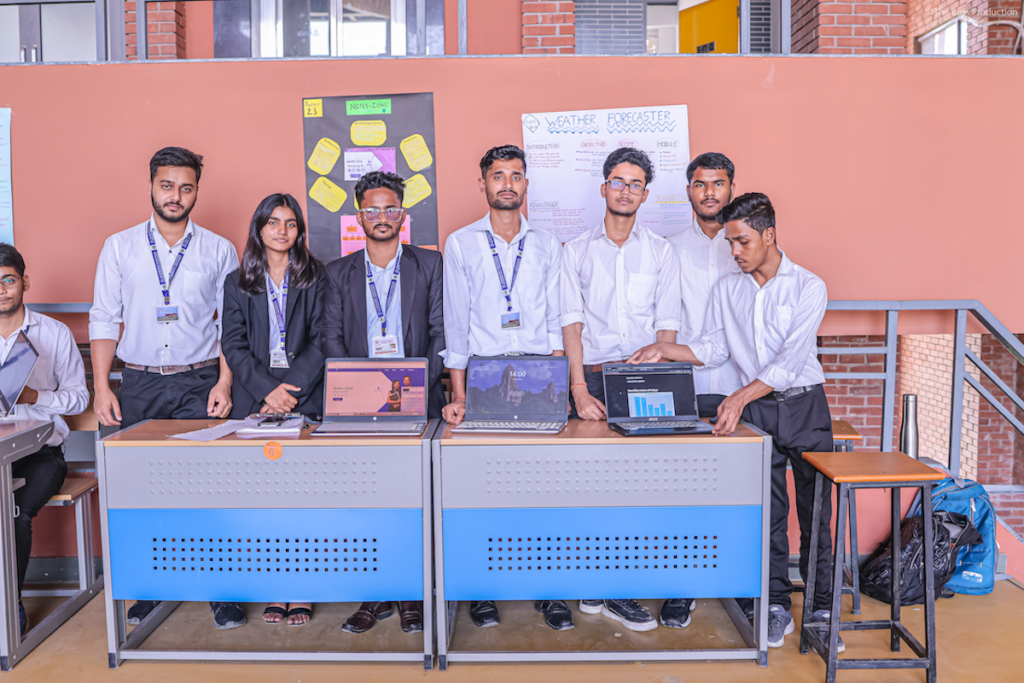
A Bachelor of Computer Application (BCA) degree opens doors to a variety of exciting career paths in the IT sector.
Here are some of the top career options after BCA for a BCA graduate:
Software Engineer
Role: Design, develop, test, and maintain software applications.
Skills Required: Proficiency in programming languages such as Java, C++, Python, and frameworks like .NET.
Career Path: Junior Developer -> Senior Developer -> Team Lead -> Software Architect.
Web Developer
Role: Create and maintain websites and web applications.
Skills Required: HTML, CSS, JavaScript, and frameworks like Angular, React, and Vue.js.
Career Path: Front-End Developer -> Full-Stack Developer -> Web Designing Manager.
System Analyst
Role: Analyze and design IT solutions to meet business needs.
Skills Required: Strong analytical skills, understanding of business processes, and good communication.
Career Path: System Analyst -> Senior System Analyst -> IT Consultant.
Database Administrator (DBA)
Role: Manage and maintain databases to ensure data integrity, security, and availability.
Skills Required: SQL, Oracle, MySQL, and DBMS.
Career Path: Junior DBA -> Senior DBA -> Database Architect.
Network Administrator
Role: Manage and maintain an organization’s computer networks.
Skills Required: Networking protocols, firewall management, and network configuration tools.
Career Path: Network Technician -> Network Administrator -> Network Manager.
Cybersecurity Expert
Role: Protect systems and networks from cyber threats and vulnerabilities.
Skills Required: Ethical hacking, penetration testing, knowledge of security protocols.
Career Path: Cybersecurity Analyst -> Cybersecurity Consultant -> Chief Information Security Officer (CISO).
IT Support Specialist
Role: Provide technical support and troubleshoot IT issues for users.
Skills Required: Problem-solving, customer service, knowledge of various IT systems.
Career Path: IT Support Technician -> IT Support Specialist -> IT Support Manager.
Digital Marketer
Role: Use digital channels to promote products and services.
Skills Required: SEO, SEM, content marketing, social media marketing.
Career Path: Digital Marketing Executive -> Digital Marketing Manager -> Digital Marketing Director.
Data Scientists
Role: Analyze and interpret complex data to help organizations make informed decisions.
Skills Required: Statistical analysis, data presentation, proficiency in R and Python.
Career Path: Data Analyst -> Data Scientist -> Lead Data Scientist.
Mobile App Developer
Role: Develop applications for mobile devices (iOS, Android).
Skills Required: Mobile development frameworks like React Native, Flutter, Swift.
Career Path: Junior App Developer -> Senior App Developer -> Mobile App Development Manager.
Project Manager
Role: Oversee IT projects from inception to completion, ensuring they meet deadlines and budgets.
Skills Required: Leadership, communication, understanding of project coordination methodologies like Agile and Scrum.
Career Path: Project Coordinator -> Project Manager -> Program Manager.
Tech Entrepreneur
Role: Start and run a tech company or business.
Skills Required: Business acumen, innovation, technical knowledge.
Career Path: Entrepreneur -> Startup Founder -> CEO.
Game Developer
Role: Design and develop video games for various platforms.
Skills Required: Game design, programming (Unity, Unreal Engine), creativity.
Career Path: Junior Game Developer -> Senior Game Developer -> Lead Game Designer.
Top Companies Hiring BCA Graduates
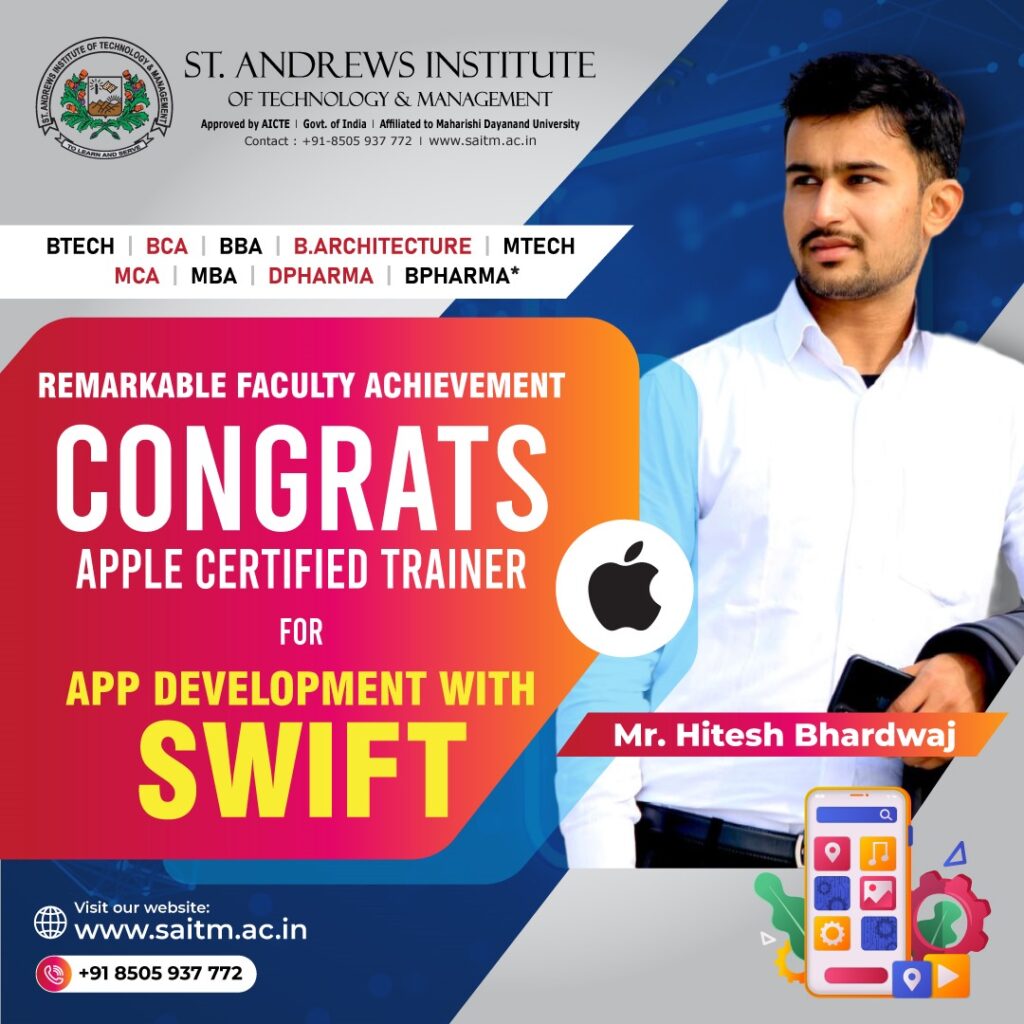
BCA Graduates have a wide range of opportunities in the IT and software industry. Many top companies actively hire BCA graduates for various roles.
Here are some of the top recruiters for BCA graduates:
Tata Consultancy Services (TCS)
Roles: Software Developer, System Analyst, IT Consultant
Description: TCS is one of the largest IT services firms in the world, offering a variety of technology solutions and services.
Infosys
Roles: Software Engineer, System Engineer, Business Analyst
Description: Infosys provides IT consulting, software development, and outsourcing services globally.
Wipro
Roles: Project Engineer, Software Developer, IT Support
Description: Wipro offers information technology, consulting, and business process services.
HCL Technologies
Roles: Software Developer, Network Engineer, Technical Analyst
Description: HCL Technologies is a leading global IT services company that helps enterprises reimagine and transform their businesses through digital technology transformation.
Accenture
Roles: Application Development Associate, IT Analyst, Technology Consultant
Description: Accenture provides consulting, technology, and outsourcing services with a focus on helping clients achieve digital transformation.
IBM
Roles: Software Engineer, Data Analyst, Cloud Engineer
Description: IBM is a multinational technology company that offers hardware, software, and consulting services.
Capgemini
Roles: Software Consultant, Technical Analyst, Application Developer
Description: Capgemini provides consulting, technology, professional, and outsourcing services.
Cognizant
Roles: Programmer Analyst, Software Developer, IT Consultant
Description: Cognizant is a multinational corporation that provides IT services, including digital, technology, consulting, and operations services.
Tech Mahindra
Roles: Software Developer, Network Engineer, System Analyst
Description: Tech Mahindra offers IT services and solutions to various industries worldwide.
Oracle
Roles: Database Administrator, Software Developer, Cloud Specialist
Description: Oracle is a global leader in database software, cloud solutions, and enterprise software products.
Amazon
Roles: Cloud Support Associate, Software Programming Engineer, Data Analyst
Description: Amazon, a global e-commerce giant, also offers cloud computing services through Amazon Web Services (AWS).
Microsoft
Roles: Software Engineer, IT Support Specialist, Data Scientist
Description: Microsoft is a multinational technology company that develops, licenses, and supports a wide range of software products, services, and devices.
Deloitte
Roles: Business Technology Analyst, IT Consultant, Software Designer
Description: Deloitte is a multinational professional services network offering audit, consulting, tax, and advisory services.
KPMG
Roles: IT Advisory Associate, Software Designer, Data Analyst
Description: KPMG is a global network of professional services firms providing audit, tax, and advisory services.
Ernst & Young (EY)
Roles: IT Risk Analyst, Software Designer, Technology Consultant
Description: EY is a multinational professional services firm offering advisory, assurance, tax, and transaction advisory services.
Additional Recruiters:
Flipkart
Paytm
L&T Infotech
Mindtree
Adobe
Dell Technologies
Hexaware Technologies
SAP Labs
Birla soft
Salary Expected After BCA Course in India
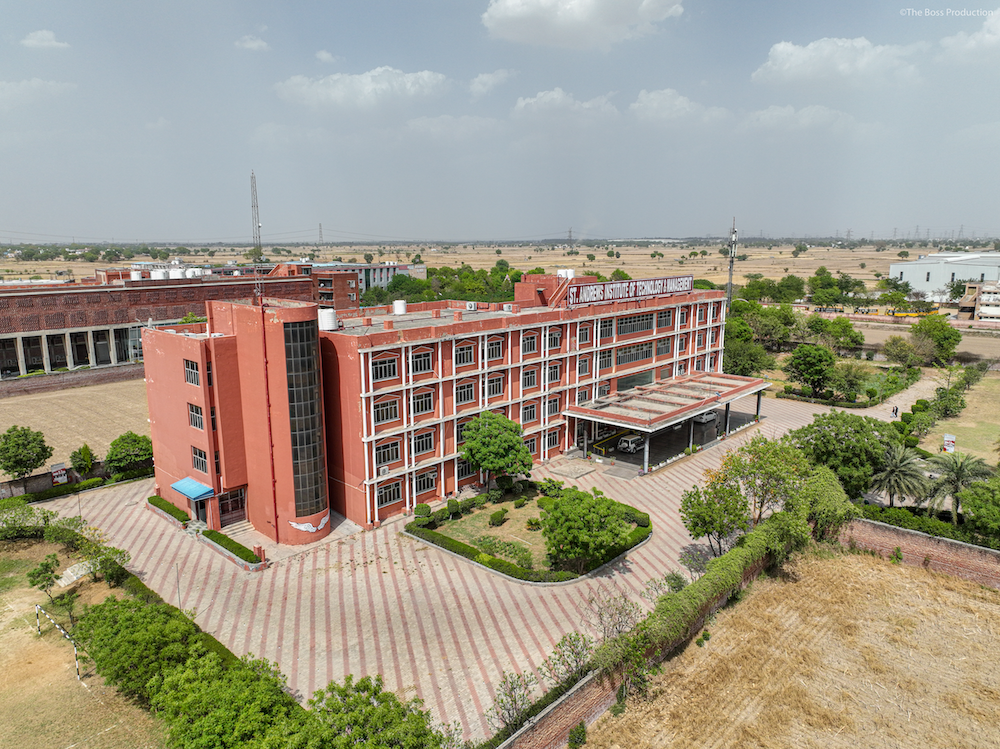
The average salary for BCA graduates in India varies based on several factors, including job role, industry, location, experience, and skills.
Here’s a detailed breakdown:
Factors Influencing BCA Salaries:
Job Role: Different roles within the IT sector offer varying salary levels. For example:
Software Designer: ₹3 lakh to ₹6 lakh per annum (entry-level).
System Administrator: ₹2.5 lakh to ₹5 lakh per annum (entry-level).
Data Analyst: ₹3 lakh to ₹6 lakh per annum (entry-level).
Industry
Average Salary of a BCA degree holder may differ based on the industry, with sectors such as IT services, software programming, and e-commerce typically offering higher salaries compared to others.
Location
Average Salary of a BCA degree holder can vary significantly based on the city or region. Metropolitan cities like Bangalore, Pune, Hyderabad, Chennai, and Mumbai generally offer higher salaries due to the cost of living and demand for IT professionals.
Experience
As with any field, experience plays a crucial role in determining salary levels. Entry-level positions offer lower average salary, which increase with experience and expertise.
Skills and Specializations
Specialized skills such as programming languages (Java, Python, etc.), web development, and data analysis can command higher salaries.
Average Salary for a BCA Graduate in India (Entry-Level):
Software Designer: ₹2.5 lakh to ₹6 lakh per annum
System Engineer: ₹2.5 lakh to ₹5 lakh per annum
Data Analyst: ₹3 lakh to ₹6 lakh per annum
Web Developer: ₹2.5 lakh to ₹5 lakh per annum
Network Engineer: ₹2.5 lakh to ₹5 lakh per annum
IT Support Specialist: ₹2.5 lakh to ₹4.5 lakh per annum
Average Salary for a BCA Graduate in India (Mid-Level and Senior Positions):
Software Development Manager: ₹8 lakh to ₹20 lakh+ per annum
Project Manager (IT): ₹8 lakh to ₹20 lakh+ per annum
Data Scientist: ₹8 lakh to ₹25 lakh+ per annum
IT Consultant: ₹6 lakh to ₹18 lakh+ per annum
Senior Software Engineer: ₹6 lakh to ₹15 lakh+ per annum
Freelancing and Entrepreneurship After BCA
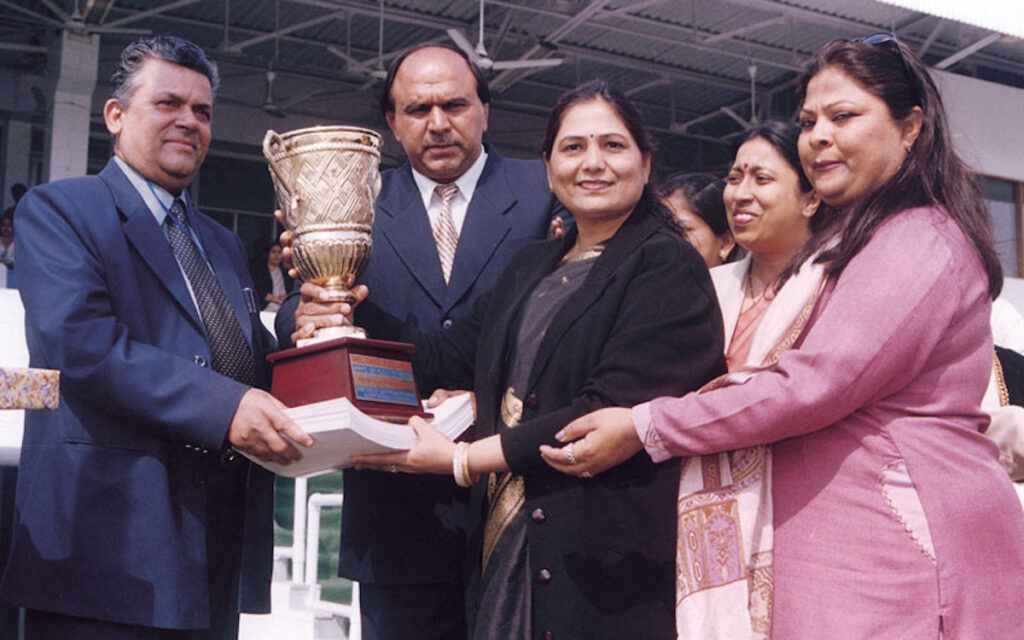
Freelancing and entrepreneurship offer exciting avenues for BCA graduates to leverage their skills, creativity, and expertise to build successful careers and businesses.
Here’s how BCA graduates can explore freelancing and entrepreneurship opportunities:
Freelancing:
Identify Your Skills
Assess your skills and strengths in areas such as software development, web designing, graphic design, digital marketing, content writing, or IT support.
Build Your Portfolio
Create a portfolio showcasing your projects, past work, and client testimonials to demonstrate your expertise and credibility to potential clients.
Choose Your Niche
Determine your niche based on your interests, expertise, and market demand. Specializing in a specific area can help you stand out and attract clients.
Join Freelance Platforms
Sign up on freelance platforms such as Upwork, Freelancer, Fiverr, or Toptal to find projects, connect with clients, and bid on job opportunities.
Market Yourself
Use social media, professional networking sites, and personal branding strategies to promote your services, build relationships with clients, and expand your freelance network.
Entrepreneurship:
Identify a Problem or Opportunity
Identify a market need, problem, or opportunity that you are passionate about addressing with your expertise in computer application and technology.
Validate Your Idea
Conduct market research, surveys, and feasibility studies to validate your business idea and assess its potential for success in the marketplace.
Develop a Business Plan
Create a comprehensive business plan outlining your business model, target market, competitive analysis, marketing strategy, financial projections, and growth roadmap.
Build Your Product or Service
Develop a prototype or minimum viable product (MVP) of your product or service using your technical skills and expertise in computer applications.
Secure Funding
Explore various funding options such as bootstrapping, crowdfunding, angel investors, venture capital, or government grants to finance your startup venture.
Top BCA Colleges in India
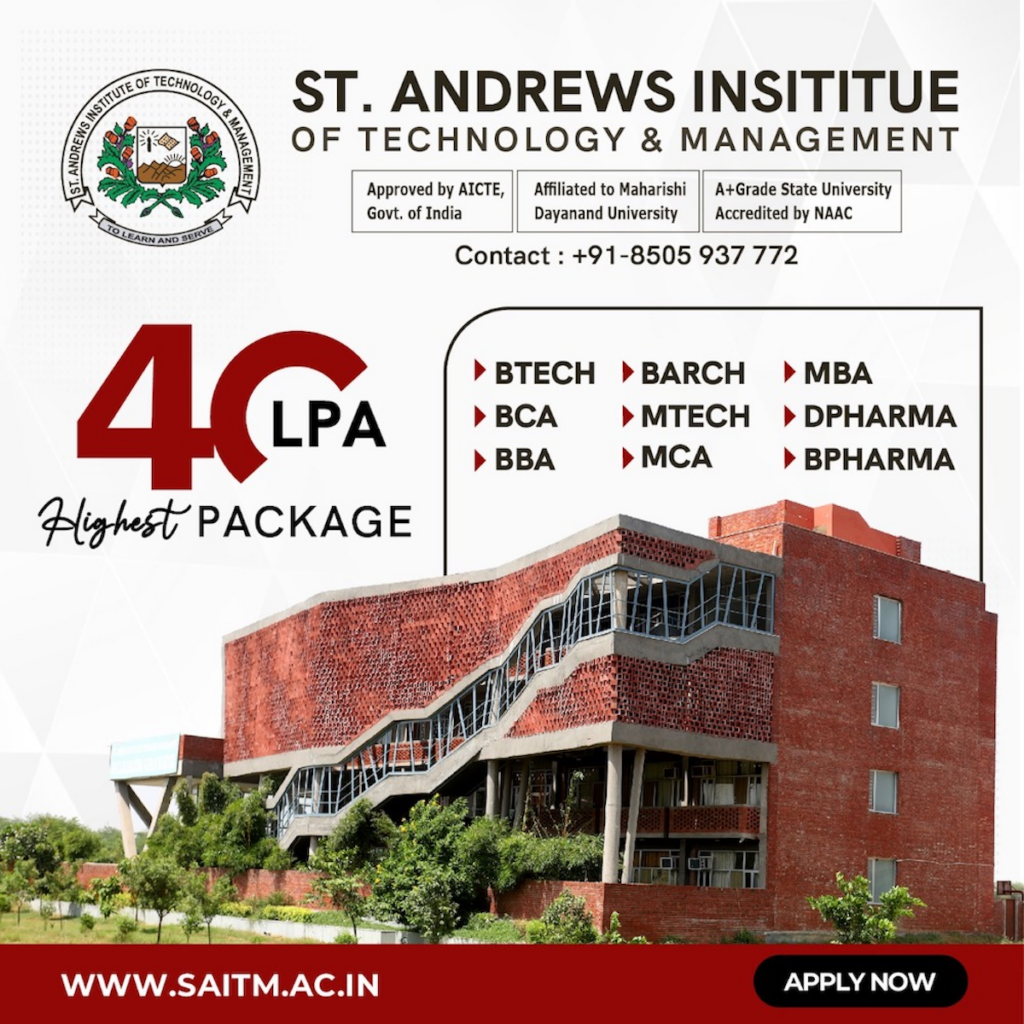
There are several prestigiou BCA college in India known for their quality education, experienced faculty, and infrastructure.
Here are some of the top BCA college for BCA course in India:
University of Delhi, Delhi
Colleges providing BCA course in DU are as follows:
Shaheed Sukhdev College of Business Studies (SSCBS)
Maharaja Agrasen Institute of Management Studies (MAIMS)
Deen Dayal Upadhyaya College (DDUC)
Maharaja Agrasen College
St. Andrews Institute of Technology & Management (SAITM), Gurgaon
St. Andrews Institute of Technology & Management (SAITM) offers a Bachelor of Computer Applications (BCA) program aimed at providing students with a strong foundation in computer science and its applications.
National Institute of Technology (NITs)
NITs are prestigious institutions offering BCA courses along with other engineering and technology courses.
Indian Institutes of Information Technology (IIITs)
IIITs are autonomous institutes offering specialized courses in information technology.
Banaras Hindu University (BHU), Varanasi
BHU offers a BCA course through the Faculty of Science, known for its academic excellence and research opportunities.
Maharshi Dayanand University (MDU), Rohtak
MDU offers a well-rounded BCA course through its affiliated colleges. The university focuses on providing quality education and hands-on experience to prepare students for the IT industry.
Guru Gobind Singh Indraprastha University (GGSIPU), New Delhi
GGSIPU offers a highly respected BCA course through various affiliated colleges. The curriculum is industry-oriented, and the university emphasizes practical skills and placements.
University of Madras, Chennai
Colleges affiliated with the University of Madras, such as
Queen Mary’s College offer BCA course with a strong emphasis on theoretical concepts and practical skills.
University of Pune, Pune:
Government colleges affiliated with the University of Pune, such as
Brihan Maharashtra College of Commerce (BMCC) offer BCA courses with a focus on industry-oriented curriculum and placement support.
University of Hyderabad, Hyderabad
The School of Computer and Information Sciences at the University of Hyderabad offers a BCA degree known for its interdisciplinary approach and research opportunities.
FAQs
What is BCA?
BCA stands for Bachelor of Computer Applications. It is an undergraduate degree program in the field of computer applications and information technology.
What is the duration of a BCA?
The duration of a BCA is typically three to four years, depending on the educational institution and country-specific regulations.
What are the eligibility criteria for BCA?
Eligibility criteria may vary, but generally, candidates must have completed their 10+2 schooling with mathematics as one of the subjects from a recognized board or institution.
What subjects are covered in the BCA curriculum?
The BCA syllabus covers various subjects related to CS and applications, including programming languages, database management, computer network, web development, software engineering principles, and more.
What are the career opportunities after completing BCA?
BCA degree graduates can pursue careers as software developers, web developers, database administrators, network administrators, systems analysts, IT consultants, quality assurance analysts, technical writers, and more.
Is it necessary to have prior programming knowledge before joining a BCA program?
While prior programming knowledge is not always required, having some familiarity with programming concepts can be beneficial for students enrolled in a BCA program.
Are internships or practical training included in the BCA program?
Many BCA programs include internships, practical training, and hands-on projects to provide students with real-world experience and enhance their practical skills as software developer , web development, database management, etc.
Can BCA graduates pursue higher education?
Yes, BCA student can pursue post-secondary education by enrolling in master’s programs such as Master of Computer Applications (MCA) or other relevant postgraduate programs. They can also pursue certifications in specialized areas of interest.
What is the difference between BCA and B.Tech (Computer Science)?
BCA bachelor of computer application focuses more on application-oriented aspects of computer science, while B.Tech (Computer Science) is a more comprehensive engineering program that covers both theoretical and practical aspects of computer science and engineering.
What are the job prospects and salary expectations for BCA graduates?
BCA bachelor of computer application graduates have a wide range of job prospects in the IT industry, and their salary expectations vary based on factors such as job role, experience, location, and employer. Entry-level salaries for BCA graduates typically range from moderate to competitive, with opportunities for salary growth with experience and skills development.

